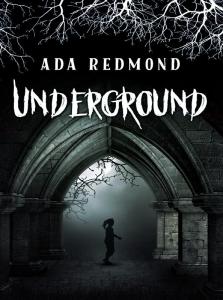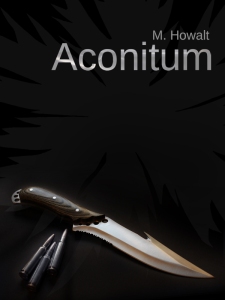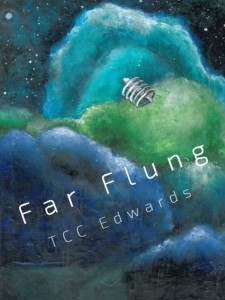Neither Legal Nor Tender by T.P Keating is one of those stories that I kept meaning to get round to and never did. I’m very glad I finally dived in!
Serial Status: Ongoing. Have read up to Chapter 15.
Spelling/Grammar Rating: 2
 Jukepop Synopsis:
Jukepop Synopsis:
That weekend, all Beth Hargreaves wanted was to paint her kitchen, but all she got was nearly killed, thanks to a home-made good luck charm with built-in bad juju to spare. It didn’t get much better the next weekend either…
WARNING!!! This critique may contain spoilers!!!
What Was Done Well:
I loved how easily the situation snow balls out of control. The synopsis sums it up – all Beth wanted to do was paint her kitchen but instead she finds herself in a whole heap of trouble that only gets worse and worse. It’s strangely hilarious, especially as Beth keeps coming back to wanting to paint her kitchen. At one point she is captured by a peculiar cult who want to make her their leader and her first thought is ‘Well I could make them do my kitchen for me’. It had me in stitches!
Another thing I want to touch on is the narrative. Neither Legal Nor Tender is written in the first person, which has always been a hit or miss for me. So often I read stories where the character’s narration takes over everything until it starts to feel very much like telling and not showing. T.P achieves a very balanced result where Beth’s voice does not over power the scene.
Overall, Neither Legal Nor Tender has a Da Vinci Code vibe yet it is entirely different. There’s an element of adventure; New and unusual revelations come to light and each one plummets Beth deeper and deeper down the proverbial rabbit hole. What makes this story different is its quirky sense of humour. It has its own voice and tone – where one paragraph will leave your heart pounding, wondering what will happen next and in the next it releases the tension with a well placed joke or hilarious insight.
What Could Have Been Better:
The first chapter was very much an information dump with details that could have been spread across the next few chapters. I realise some of it is relevant – the parts where Beth used to be a cab driver and how she got Orlan’s Token in the first place is integral. All the stuff about the sports Beth enjoyed in school and how she wanted to be a ballerina could be placed elsewhere. Maybe as she is running in later chapters she could be glad she is quite athletic. After all, we get the information about her taking up kick boxing in this way which works well.
Another thing I wanted to touch on was the scene in Chapter nine where Beth steps out of the shed and then in the next sentence she wakes up to find she has been captured. There was no line that led me to believe she had been knocked out. I think the effect is meant to be sudden – Beth wouldn’t necessarily know she’d been clonked on the head or drugged, but she would certainly be aware that she was lapsing into unconsciousness – especially if it was so sudden and unexpected.
Overview:
Neither Legal Nor Tender was a terrific read with some fantastic one liners. ‘Curiosity. It hadn’t killed me yet, but it sure knew where I lived.’ is my favourite one so far. Beth has a quirky sense of humour that fits in well with the mood of the story. This is definitely something I would recommend. It’s a non stop roller coaster with a motivated and sassy protagonist we can all get on board with.



